Sneak Peek: The three most common Google interview questions:
- What's your favorite product and why? Watch an answer to this question here.
- Design a product for drivers driving in rush hour. Watch answer here.
- Design YouTube. Watch a sample answer to this question here.
Getting ready for an interview at Google and want to know what to expect? We've got you covered!
Google receives over three million applications every year. So being considered for an interview at all is a massive accomplishment.

But you don't want to stop there. You want to actually get hired and get a job at Google. And making it into that select group will take a careful, tactical, well-practiced approach to your interview.
That starts by understanding the Google Interview Process. Here's a guide to what you can expect.
The Google Interview Process

Below are the 6 stages of the Google interview process for all of the company's roles. This includes product management, software engineering, product marketing, and other key Google hires.
Step 1: Recruiter Phone Screening Rounds
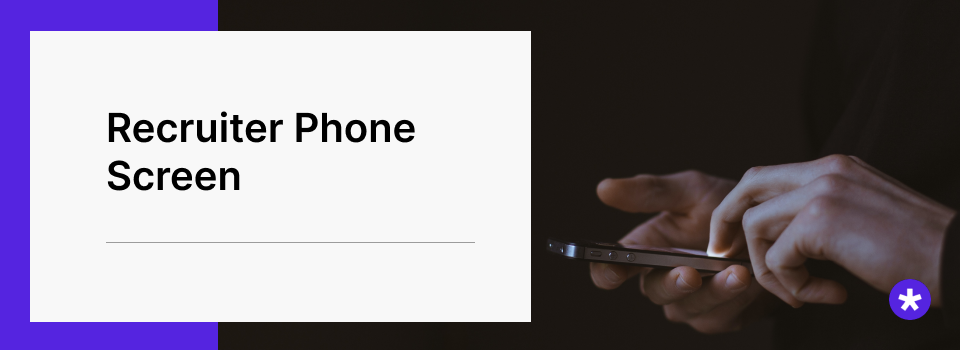
A Google recruiter will call you for a personal conversation. This phone screen is an initial evaluation of your background, competency, and behavioral suitability.
The recruiter will ask questions about your work background, ask behavioral interview questions, and get into some technical questions. You may be asked to solve coding problems on-the-spot depending on the role.

This is Google's first chance to get a sense of who you are. So you've got to make an excellent first impression.
The recruiter will give you some information on what happens next. If the recruiter approves you to go further, the next step is to get a call from the hiring manager.
Step 2: Hiring Manager Screening
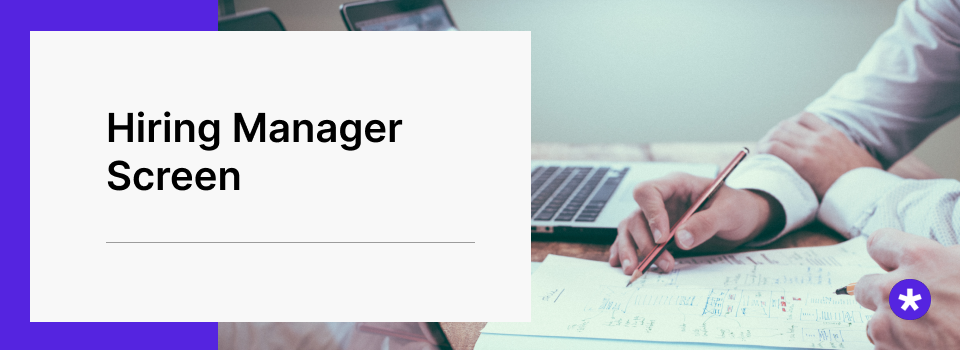
A Google hiring manager will call you once you pass the recruiter screening. This conversation goes more in-depth. It would be best if you also were prepared to answer why you are a good fit for this role.
Technical applicants are usually asked to solve coding problems over the phone.
Non-technical applicants get more targeted questions on behavior, potential situations, and role-relevant case studies.
Google's phone screening is challenging and lasts 30 to 60 minutes. You need to do mock phone interviews to fully prepare for it.
Step 3: Virtual On-Site Interview Loops
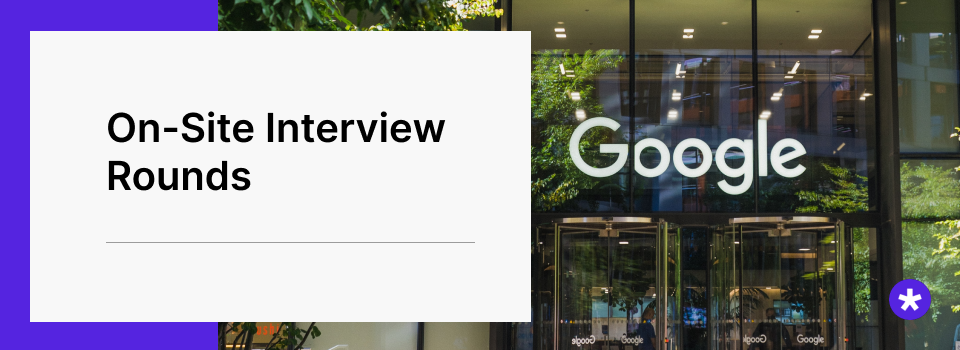
The Google hiring process, like many other Big Tech companies, involves onsite interviews.
Google's onsite interview rounds are now done virtually and typically happens through Google Hangouts or BlueJeans. The recruiter will let you schedule the interview times.
You will be interviewed by 3 to 5 interviewers at a time and go through 4 to 5 interview rounds. Most interviews last around 45 minutes each but can go for longer.
These rounds include two rounds on organizational fit, two on technical competencies, and one on role-specific fit.
Technical interviews include coding and system design. In addition, technical applicants are asked to solve questions through a collaborative working tool.
The interviewers include the prospective manager, teammates, cross-functional teammates, and peers. They will grade your responses according to a standardized scoring rubric and take notes.
Google now asks standardized interview questions. As a result, every other applicant for the same role will be put through the same process and given the same questions.
You are being tested according to Google's four hiring attributes. We'll cover those more below.
Step 4: Google Team Match
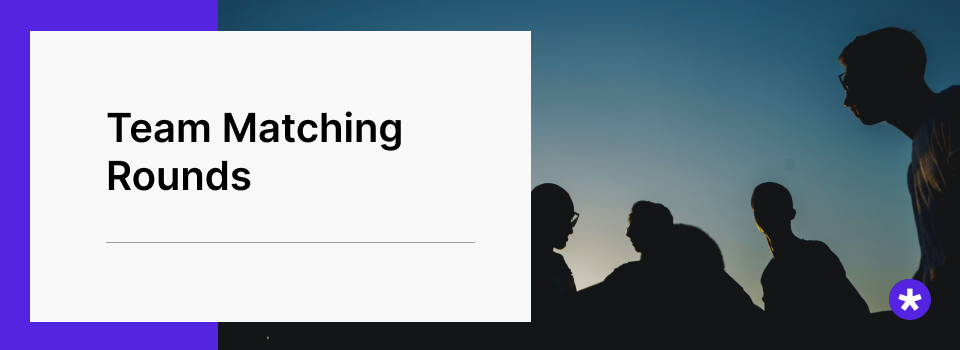
Applications may be put through a team-matching phase. This isn't done when applying for a role with an assigned team.
The team matching process can happen before or after the hiring committee review.
If Google decides to hire you before matching you with a team, it will send your information to teams with open slots available and find you the best match.
If Google decides to hire you after matching you with a team, it will include the results of this process in its hiring decision.
This phase may include interviews with prospective teams. You can confirm whether or not it does with your recruiter.
Step 5: Hiring Committee Reviews
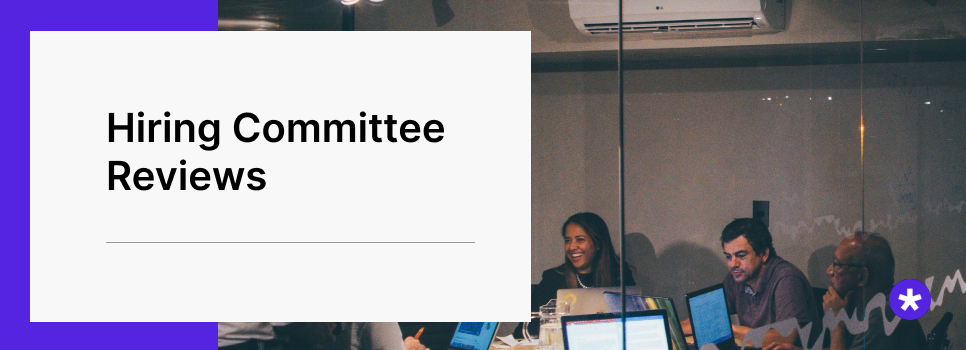
A hiring committee will determine if you're a good fit or not. This committee includes potential team members, managers, and senior managers.
This is another structured process. Again, the Google interviewers will have given standardized feedback according to a scoring rubric.

The hiring committee compiles the top scorers, reviews their information, and selects candidates to hire.
The committee sends its selection to an executive for final review.
Step 6: Executive Review and Offer
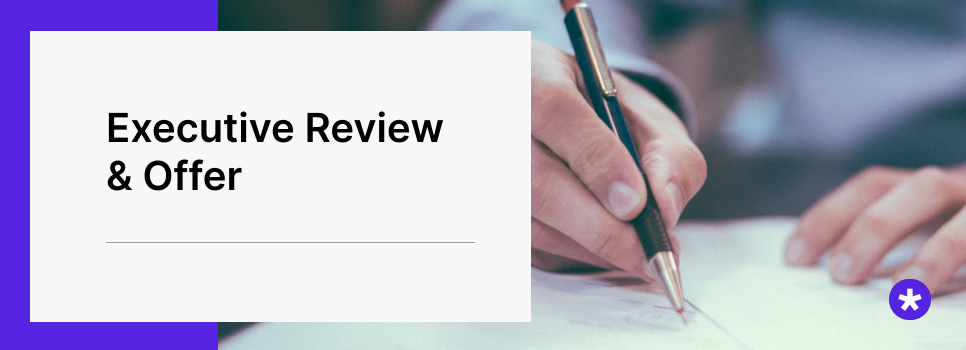
The final stage of the Google interview process sees a top-level executive reviewing the hiring committee's recommendations. This executive makes the final yes or no hiring decision.
The decision is then relayed to the recruiter, who contacts the candidate with the offer's details. Finally, candidates are given two weeks to accept a position.
Heads up: Google only contacts its hires. So you want to watch out for a call or message from them, but don't put your life on pause waiting.
Types of Google Interview Questions

Are you stressing out over potential brain teasers, such as estimating how many golf balls fit in a school bus? Google dropped those after realizing it wasn't predictive of a candidate's ability to perform their work. Plus, it was putting a lot of great candidates off.
The Google interview process includes role-related and culture-fit-related questions. Technical applicants, such as software engineers, are asked role-related questions on coding and system design. In addition, all applicants are assessed on their personal fit with cultural, teamwork, and working process questions.
These questions are either behavioral (to examine prior actions) or hypothetical.
All questions should be realistic, high-quality, and relevant to the intended role. You should expect many open-ended interview questions.
Behavioral Interview Questions
Just because you can boast an advanced repertoire of the most in-demand tech skills doesn't mean you're a shoo-in for a position at Google. You'll also need maturity, soft skills, leadership qualities, and collaborative nature to make it at Google.

Do you have the personal and soft skills it takes for success? Will you fit in?
You will be asked questions about conflict resolution, workflow methods, teamwork, collaboration, agile working, and more. The specific questions depend on the role and seniority level.
Here are a few of Google's top behavior and fit questions:
- Why do you want to work at Google?
- Tell me about yourself
- What is your favorite Google product, and why?
- Tell me about a successful project you've worked on in the past
- Tell me about a conflict you faced at work. How did you resolve the challenge?
- Describe a time you had to make a change in your work style to finish a project?
- Tell me about how you work with teammates or stakeholders who seem hard to work with
- Describe a time you've worked cross-functionally. What were you working on?
- How do you resolve conflict on your teams?
- Do you like to work in small teams or big teams?
- What is your ideal work environment like?
- What is your ideal manager like?
- How would you talk to a coworker who isn't collaborating with the team how you'd like?
- Tell me about a decision you made based on your instincts.
Want to get more in-depth on behavioral fit interviewing? Check out this complete guide.
Technical Role-Related Questions
Google's technical questions are split into coding questions and design questions.
The coding section questions cover graphs and trees, arrays and strings, dynamic programming, recursion, geometry, and math.
Curious as to what appears most? Here's one inside report:
- Graphs and Trees – 39% of questions
- Arrays and Strings – 26% of questions
- Dynamic Programming – 12% of questions
- Recursion – 12% of questions
- Geometry and Math – 11% of questions
That's a reasonably balanced spread, with even the least frequently asked questions getting a significant portion of time. So, ensure you are thoroughly prepared with deep knowledge of every topic.
Here are a few of Google's top technical questions:
- How does Google Docs work?
- How would you handle negative user feedback about YouTube, and how might you address it with the engineering team?
- What are the top 3 technology trends that will change the landscapes in the next decade?
- How would you explain cloud computing to your grandmother?
- How does Google Maps compute ETA?
- What happens when you navigate to a website?
- How does the communication between Mars and Earth work?
- Design a billing system for a doctor's office that has two locations in the Bay Area
- How would you create a high-speed network to communicate with team members on the Moon?
- How would you reduce bandwidth in a video streaming app? What technical metrics would you look at?
- YouTube went down last week. What factors could have caused a big system like that to fail?
- How would you choose a programming language to build your product at Google?
- How would you design a newsfeed algorithm for Google?
- Design YouTube's video recommendation engine
- How would you explain Twitter to an older person?
- What are the significant factors to improve response time and latency for a website?
You can find more of Google's top technical questions here.
Structure of Google Behavioral Interview Questions
A behavioral question asks you about your past. Asking a series of these questions clues Google in on your typical response patterns.
You can recognize a behavioral question because it often starts with, "Tell me about a time…?" The interviewer will likely follow up with questions like,
"What was your primary goal and why?" "How did your teammates respond?" "Moving forward, what's your plan?"
The interviewer's goal is to have you describe a prior achievement and determine how well it fits with the role you're applying to.
You can make that easier for them and frame things to your best advantage by finding the link ahead of time and then thinking of how to work it into potential answers.
Structure of Google Hypothetical Interview Questions
A hypothetical question asks what you would do in a job-related hypothetical situation. The situation can be entirely imaginary or something that's actually happened (but not to you).
You can recognize a hypothetical question because it often starts with, "What would you do if…?" The interviewer might follow that up with questions like,
"How would you assess the situation, and what recommendation would you make to your team?" "What factors would you take into consideration when making your recommendation?" "What are the pros and cons of your recommendation?" "How would you assess if this was a sustainable model moving forward?" "What impact would this have on the organization as a whole?"
Google's goal here is to find out how you perform in new, unexpected, and unfamiliar situations. These questions are directly related to the intended role. And the answers you give are incredibly valuable in assessing how you may perform.
These questions are definitely tougher to prepare for. But a Google interview process consultant can help to clue you in.
How to Prepare for the Google Interview
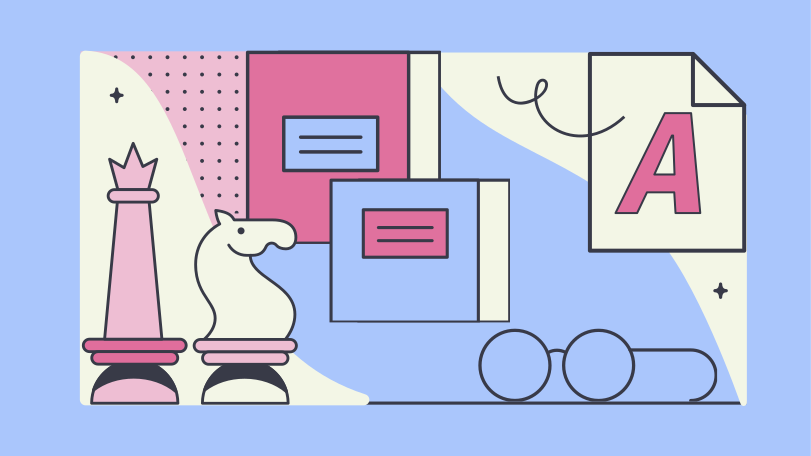
Get Familiar with Google's Virtual Interviewing Apps
This should go without saying, but you must become familiar with Google's virtual hiring tools. As mentioned earlier, Google currently uses Hangouts or BlueJeans.
You should be familiar with these apps well in advance of the interview.
Understand the Structured Interview Process
Google's interview process is structured and standardized. This means that interviewers use the same methods to assess all the candidates applying for a role.
It uses the same interview questions for all candidates, then grades the answers according to a standardized scale. Finally, hiring decisions are made according to a predetermined set of qualifications.
You won't be asked something that's a spur-of-the-moment question or intended to trip you up. Everything is systemized, objective, and neutral.
If you understand this structured format, you can better tailor your responses and answers to a successful outcome.
Create Your Own Questions
You will be asked what questions you have for your hiring managers at some point in Google's hiring process. Therefore, you need to get ready for this in advance.
It isn't a good look to not have any questions for a recruiter or interviewer. Failing to ask them questions signifies a lack of preparation, interest, curiosity, and confidence.
Mock Interview
You need to practice interviewing with an experienced coach or competent colleague. These practice interviews should cover the same subject matter and follow the same structure.
Mock interviews are a critical preparation step that makes you more comfortable, relaxed, and natural during the actual interview.
An experienced mock interviewer will guide you to respond according to Google's preferences and let you know what weak areas you have.
You practice coding and designing. You need to practice interviewing too.
Learn the STAR Method for Answering Questions
STAR stands for Situation Task Action Result. This framework provides a structured way to answer questions, especially open-ended ones. It was popularized by Amazon.
- Situation: Tell the interviewer about a situation with contextual details included,
- Task: Tell the interviewer what task or goal you were working towards,
- Action: Describe the specific actions you took to get to the intended goal,
- Result: Explain the actions' outcomes, focusing on your impact.
You can use STAR to get you through some of Google's vaguer interviewing sections. In addition, you can get more prepared by working some of your qualifications, work experiences, and achievements into mental stories.
Turn Your Resume into Mental STAR Stories
Do you know those bullet-pointed accomplishments and qualifications that got you into Google's interview process? Then, it's time to turn some of those into STAR-based stories that show off your Google traits.

We're going to cover those traits below.
How to Get Hired by Google (Key Skills)
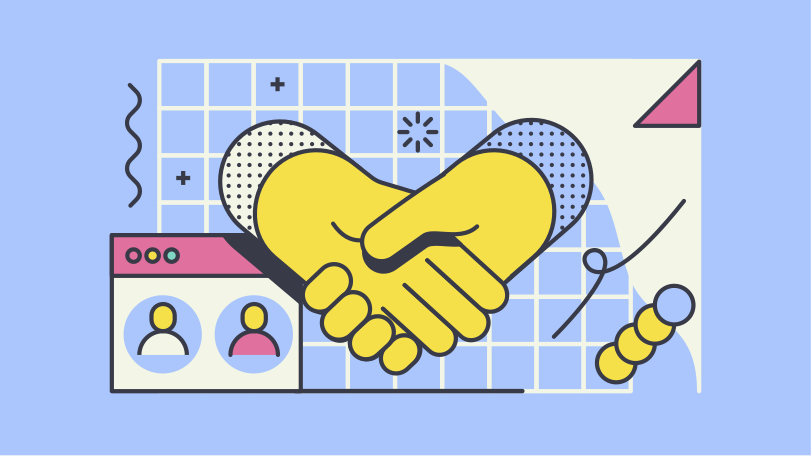
Google hires for four general attributes: general cognitive ability, leadership, Googleyness, and role-related knowledge. Therefore, the interviewers are constantly assessing you for these four skill sets.
General Cognitive Ability (GCA)
You have to be intelligent to work at Google, but this goes way beyond acing an IQ test or having a perfect GPA.
Google hires intelligent and clever people who can learn on the go, adapt to new situations, and solve challenging real-life problems. So you need good thinking, reasoning, planning, and adapting skills.
This is a general cognitive ability. It refers to a high intelligence level that can be practically applied.

Google evaluates your GCA in questions sprinkled throughout the interview rounds. The recruiter or interviewer always considers your intelligence, thinking processes, and problem-solving skills.
GCA testing is another reason why Google switched to using more practical questions. For example, hiring managers can better understand how well candidates may perform in a role when interviewing with reality-based behavioral, hypothetical, and estimation questions.
Leadership
Google hires for emergent leadership character traits. An emergent leader needs to be responsible, driven, confident, possess personal initiative, have excellent rapport skills, and be a good team player.
The emergent leadership style doesn't elect set leaders or give them formal titles. Instead, leaders naturally emerge from a team over time and step into a leadership role when needed. The leader then steps out of the position once the need is over.
You need to be able to step up and fall back as required, with zero fanfare. And you must be comfortable taking direction from colleagues who don't have set seniority over you.
Many intelligent, qualified Google applicants fail out of the interviewing process due to ego reasons.
Role-Related Knowledge
Google hires candidates that are technically qualified for the role. That means having the right background, experience, and skills.
You must have deep domain expertise and advanced competencies.
Google wants you to showcase your personal strengths and work experience and how you've leveraged your strengths and experiences to drive impact.
Your task is to show what you've been capable of and how you can grow.
An RRK interview lasts around 45 to 60 minutes. Take this seriously.
Googleyness
Googleyness is how well you can fit in and thrive at Google. That means being comfortable with ambiguity, biased towards action-taking, and able to collaborate.
But there's a little more to "Googleyness" than that. Google's former Head of People Operations, Laszlo Block, described Googleyness in his book "Work Rules."
"Attributes like enjoying fun (who doesn't), a certain dose of intellectual humility (it's hard to learn if you can't admit that you might be wrong), a strong measure of conscientiousness (we want owners, not employees), comfort with ambiguity (we don't know how our business will evolve, and navigating Google internally requires dealing with a lot of ambiguity), and evidence that you've taken some courageous or interesting paths in your life."
So, where in your personality, education, and experiences can you detect traits of Googleyness? Here are 12 Googleyness characteristics to look for:
- Doing the right thing
- Striving for excellence
- Keeping an eye on the goals
- Being proactive
- Going the extra mile
- Doing something nice for others, no strings attached
- Being friendly and approachable
- Valuing users and colleagues
- Rewarding great performance
- Being humble and letting go of the ego
- Being transparent, honest, and fair
- Having a sense of humor
Dive into it. Your Googleyness might be the edge that gets you hired instead of the next applicant. Want some help discovering these?
FAQs about Google Interviews
- Do I have to prepare for brainteasers to interview with Google? Not anymore! Google has completely gotten rid of brainteasers, riddles, and trick questions. You can look forward to standardized, pragmatic, reality-oriented sample tests.
- How long does the Google interview process take? It can take two to six months to get through the entire Google interview process.
- How many Google jobs can I apply to at one time? Google lets you apply to three jobs in a rolling 30-day window.
- How soon can I reapply for a Google position? Google prefers you wait at least one year to reapply for an engineering position.
Additional Google Interview Prep
Google interviews can be some of the most challenging interviews in the tech industry.
At Exponent, we've connected tens of thousands of job seekers in countless tech roles with expert courses and resources to best prepare them for their upcoming interviews.
If you're interested in more Google-related resources, be sure to check out the following:
💬 Check out our list of the top Google interview questions here.
📖 Read through our Google-specific interview guides.
👯♂️ Practice your behavioral and interviewing skills with our mock interview practice tool.
👨🎓 Take one of our comprehensive interview courses.
Your Exponent membership awaits.
Exponent is the fastest-growing tech interview prep platform. Get free interview guides, insider tips, and courses.
Create your free account

